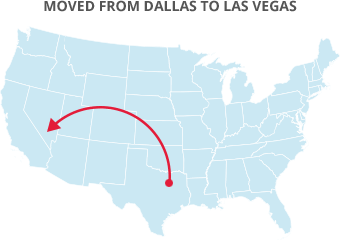
You have a business to manage. And now you’ve got to manage it while you’re moving it from one location to another! How do you keep your Denver business growing and the profits flowing while your furniture’s going out the door? That’s the big question of office relocation! Answer it inappropriately, and your productivity and profits will go out the door with the furniture.
At A-1 Freeman Moving Group, we’ve got a right answer for you – one that can help you steer clear of 8 faux pas that we, as
office relocation specialists, find all too typically made:
- Not Planning Ahead. As soon as you get word that you’ve got to move, that’s when you ought to commence planning for it. Sadly, too many firms get started on their office relocation planning a little too late. Too late for what, you ask? Well, too late for moving companies and other providers to draft a proper proposal for you, let alone properly deliver the goods and services you purchase from them. Remember: too little time frequently leads to too many errors. Let the size of your business and the complexity of your move – i.e., the number of tasks that must be performed before other tasks can be initiated – guide you in figuring out how soon is soon enough.
- Not Investigating Your Mover Properly. Office relocations are tough. You need a moving company that’s expert enough to handle office furniture and modular systems, computer systems and networking, office equipment, machinery, and hardware, cabling, phone systems, security systems, building permits, and ... that’s just looking into, make sure they’re legitimate. Visit https://ai.fmcsa.dot.gove/hhg/search.asp to see, first of all, that they’re U.S. Department of Transportation (DOT) licensed and insured, particularly for interstate commerce. Read the reviews at bbb.org. to discover if any criticisms of them are on file with the Better Business Bureau. And, if you can, check with other businesses who’ve hired them to see how well they lived up to their contractual duties. It’s also a good idea to inquire about their moving crews – whether they’re full-time employees or temps, whether they’ve been background checked and drug tested, and whether they adhere to standard chain-of-custody procedures.
- Not Coordinating and Communicating Sufficiently with Your Mover. Your office relocation manager must work with the project manager your moving company has assigned to see that your internal team and the moving company’s team are on the same page. Any changes to the schedule need to be properly relayed to all those involved, so that one delay doesn’t engender all kinds of glitches and cost overruns.
 Not Devoting Enough Internal Staff to Your Move. The difficulty of any office relocation practically decrees that you enlist the help of your own employees. Go for people in each department who understand their department’s needs thoroughly and have access to relevant company records. That may not necessarily be the department head! To be honest, you’re often better off asking for the help of experienced but non-managerial staffers, as they’re more likely to take your relocation manager’s direction without argument.
Not Devoting Enough Internal Staff to Your Move. The difficulty of any office relocation practically decrees that you enlist the help of your own employees. Go for people in each department who understand their department’s needs thoroughly and have access to relevant company records. That may not necessarily be the department head! To be honest, you’re often better off asking for the help of experienced but non-managerial staffers, as they’re more likely to take your relocation manager’s direction without argument.- Not Following the Schedule. It’s rarely the case that an office relocation schedule loses speed. Yes, various steps can be held up for this or that reason. But what frequently happens then is that the schedule is tightened. And that frequently happens because the planning got put off until too late. And what happens when you attempt to compensate for lost time? More people from your team and the mover’s team are given more overtime hours. Everybody starts getting in the way of everybody else. Things get sloppy. Mistakes are made. And who pays for all this? Yep. Better to come up with a rational schedule up front and follow it.
- Not Budgeting Appropriately for Your Move. Admittedly, it’s not easy for any company that hasn’t gone through a relocation before to know precisely what its move will cost in the end. To leave that cost to chance, though, or to budget for it inadequately is a big no-no! Typically, you must allow for recurring real-estate costs, soft-dollar expenses for, say, employee relocation and training, capital expenses like new furniture and office equipment purchases, moving expenses, and consulting expenses for such things perhaps as interior design and engineering. The more of your requirements you explore at the start, the more manageable the expense of your office relocation will be.
- Not Having Enough Coverage. If you’ve decided to sign with a professional relocation company of any repute, the risk of property damage is minimal. That said, you be prepared. Talk with your mover about the coverage options they have and pick the most useful for your operations.
- Not Thinking to Back Up Your Data. We needn’t call up horror stories here. Suffice it to say that during your office relocation, your company’s material records ought to be backed up digitally, whenever doable. Those that can’t be digitized should be kept safely in a warehouse. And your digital data should be backed up in the cloud. Historically, losing such data or suffering its vandalism isn’t a common experience. But do you really want to risk it? Then, for goodness’ sake, back it up!
A big way to avoid these kinds of blunders – or to offset them effectively – is to hire a moving company that has a proven track record of successful office relocations. May we recommend A-1 Freeman Moving Group right here in Denver? Check us out as we suggest above. Then review our
office relocation services and ...
Request a free quote



 You have a business to manage. And now you’ve got to manage it while you’re moving it from one location to another! How do you keep your Denver business growing and the profits flowing while your furniture’s going out the door? That’s the big question of office relocation! Answer it inappropriately, and your productivity and profits will go out the door with the furniture.
You have a business to manage. And now you’ve got to manage it while you’re moving it from one location to another! How do you keep your Denver business growing and the profits flowing while your furniture’s going out the door? That’s the big question of office relocation! Answer it inappropriately, and your productivity and profits will go out the door with the furniture. Not Devoting Enough Internal Staff to Your Move. The difficulty of any office relocation practically decrees that you enlist the help of your own employees. Go for people in each department who understand their department’s needs thoroughly and have access to relevant company records. That may not necessarily be the department head! To be honest, you’re often better off asking for the help of experienced but non-managerial staffers, as they’re more likely to take your relocation manager’s direction without argument.
Not Devoting Enough Internal Staff to Your Move. The difficulty of any office relocation practically decrees that you enlist the help of your own employees. Go for people in each department who understand their department’s needs thoroughly and have access to relevant company records. That may not necessarily be the department head! To be honest, you’re often better off asking for the help of experienced but non-managerial staffers, as they’re more likely to take your relocation manager’s direction without argument.